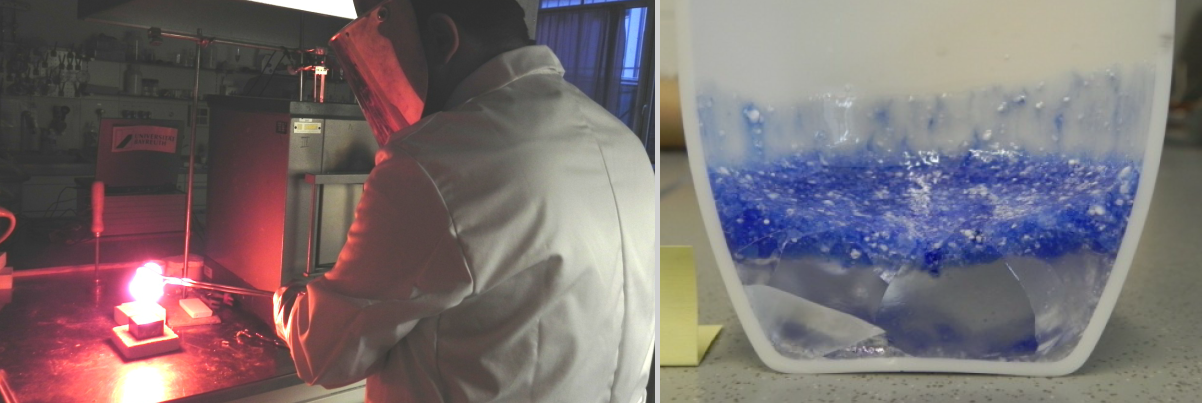Glass Development
The development of new glasses follows a dual approach in which possible glass compositions are first selected by computer, their properties calculated or predicted, and then verified experimentally in the glass laboratory. In this way, new types of glass with unique properties are created at Keylab Glass Technology in order to meet the increasing demands placed on future materials.
These include glasses with wavelength-converting properties, for example for photovoltaic applications. These absorb short-wave light and emit long-wave light. Absorption and emission maxima can be adapted to the respective application via the glass composition.
In general, inorganic glasses are characterized by an enormous variability of properties, achievable through the numerous combination possibilities of additives. For example, glass compositions with a low glass transition range are developed in Keylab Glass Technology to meet the processability requirements for glass preforms, e.g. for high-purity lenses in optical applications.
As the use of heavy metals such as lead in glass and glass products is increasingly regulated, Keylab Glastechnologie is working on new compositions for oxide glasses that do not contain toxic and environmentally harmful substances and yet also have advantageous properties such as a low processing temperature. One possible application is lead-free, low-melting point REACH-compliant bismuth-based brazing alloys.
New types of glass for glass flakes or (micro) hollow glass beads also represent an interesting approach to further expanding the range of applications for these semi-finished glass products.
Thanks to the existing melting technology from the crucible to the 100 kg/day scale in combination with the shaping technologies, new glasses can not only be tested in the laboratory scale, but can also be accompanied through to the sampling phase at the industrial partner.


